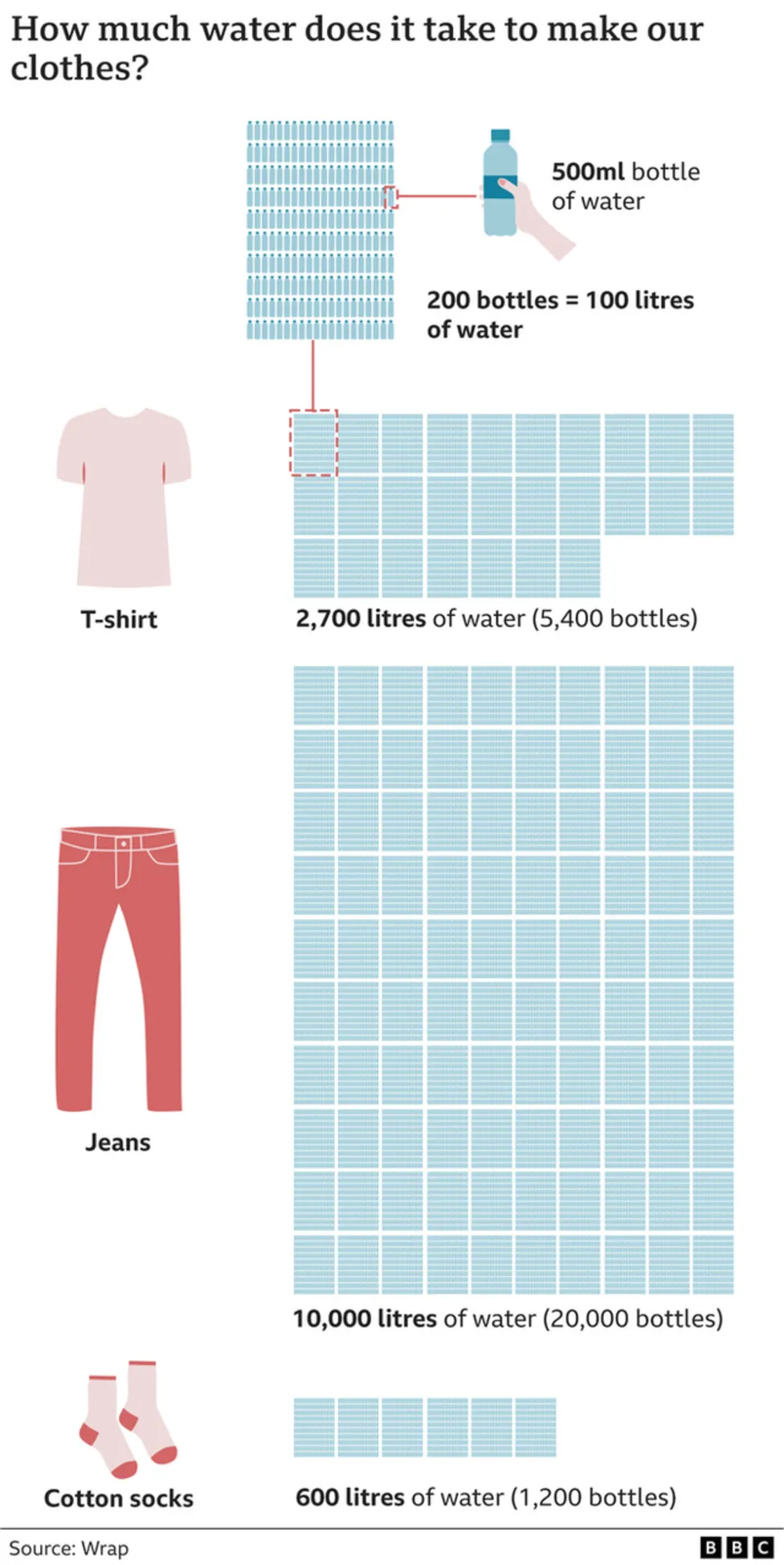What's the environmental impact of fast fashion?
Producing clothes uses a lot of natural resources and creates greenhouse gas emissions which are responsible for climate change. Overall, the fashion industry is responsible for 8-10% of global emissions, according to the UN - more than the aviation and shipping combined. And global clothes sales could increase by up to 65% by 2030, the World Bank suggests. Most of fashion's environmental impact comes from the use of raw materials: cotton for the fashion industry uses about 2.5% of the world's farmland synthetic materials like polyester require an estimated 342 million barrels of oil every year clothes production processes such as dying requires 43 million tonnes of chemicals a year. The industry also uses a lot of water.

The fashion industry is responsible for 8-10% of global emissions - and British shoppers buy more clothes than any others in Europe.
Now, some UK brands are being investigated over claims about the sustainability of their fashion lines. What can you do to reduce your wardrobe's impact on the planet?
